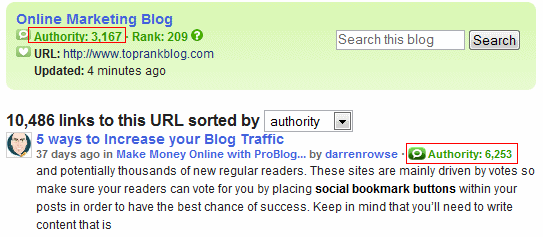Virginia Department of Business Assistance employee and dedicated blogger, Will Vehrs got a good result last month from the Commonwealth’s Department of Employment Dispute Resolution. The severity of disciplinary action against him for some blogging activity was reduced and the ten days’ pay that had been docked was ordered to be restored.
The story in summary form is at Virginia’s Daily Press site in the article State worker suspended over blog comments wins grievance. That’s not a blog post so I’m not sure about the archiving, but the story is told also on Townhall.com.
The bigger story here is that as an outcome of these events we have a landmark decision by a government agency, about public sector employee blogging, in the published findings of the Virginia Department of Employment Dispute Resolution (EDR).
I am not a lawyer, but I have been a government executive and more recently a government sector consultant. I believe this document will prove very helpful to public service managers who take the time to read and ponder it, and to anyone who consults on blogging to government departments or agencies.
Not before time. Until now I have not been able to discover any really useful information, directly about government employee blogging, as distinct from coverage of general issues about employee blogging.
There are several well-cited codes or sets of guidelines on blogging by employees in the corporate sector, e.g. those from IBM, Sun Microsystems and Thomas Nelson. But to the best of my knowledge no one has yet produced a set of blogging guidelines for the public sector, or at least not so as to be readily accessible from an online search.
And my sense is that any public sector manager or blogging consultant asked right now to advise a government agency on, for example, blogging guidelines for employees, would have to cobble something together from the various corporate sector guidelines and codes of blogging conduct.
That would be better than nothing, but might not be enough to provide guidelines adequate to the challenge. Or at least might not be enough to satisfy the client that every area of risk or uncertainty has been covered adequately and in language that speaks to the government employment context.
There is also the issue of workable guidelines being developed for individual agencies, which, it could be inferred from the EDR decision, may be acting less than prudently in relying on blanket guidelines established on a ‘whole of government’ basis.
A related issue is that if a government agency permits (or encourages) employees to blog, there could be a need for some quantification of what constitutes acceptable use of ‘on the job’ time. As the EDR decision makes clear, one of the limitations on Virginia Department of Business Assistance (VDBA) managers’ ability to discipline employees over blogging was that the applicable policy, i.e. the Commonwealth’s policy on Internet usage, allowed for ‘incidental and occasional personal use’ of the Commonwealth’s internet access, but did not attempt to quantify that.
Nor, it seems, is a ‘common sense’ approach going to be necessarily adequate in itself. In Will Vehr’s case, the supervisor counseled him about use of the weblog, warning that he would have to be careful not to ‘cross the line’, to be careful about the frequency and content of his commentary, to use good judgment and make sure his commenting did not become a distraction. Those principles are pretty much in line with the various corporate guidelines, such as those mentioned above. But once a media storm blew up and politicians and community members got involved, the principles were not enough in themselves to enable the supervisor to discipline Vehrs in such a way that the action would hold up under the scrutiny of a grievance procedure.
An interesting side issue is that although Vehrs had a disclaimer posted on the blog stating that the views he expressed were his own, EDR found that the posting of the disclaimer was “not sufficient to insulate him from violation of the policy (that he was required to state that his communications were personal and not a ‘communication of the agency or the Commonwealth’)”. Which raises the question of what would constitute a disclaimer adequate for the purpose.
According to reports, such as that on the Townhall.com site, the VDBA’s solution to these interesting challenges to public administration has been fairly basic – ban blogging. Presumably that means blogging on the taxpayer’s time. Nothing is said in the reports I’ve seen about guidance on private blogging by a state employee, where similar guidelines surely need to be established as are included in corporate sector guidelines cited above.
A ban is not a policy. And while understandable in the circumstances, that outcome is not helpful for those of us who might be interested in seeing how a government agency would go about adopting a more nuanced policy approach.
So in the absence of such an approach and drawing on the EDR findings, here are some key points I would be looking to include in any set of guidelines for government sector blogging, in addition to principles already established for the corporate sector:
- quantify what would constitute an acceptable – not necessarily recommended – upper limit of time over a given week for personal use of the employer’s internet access, on the employer’s time, for blogging
- with due consideration to privacy issues, establish logging and archiving arrangements adequate to provide objective evidence of time spent in blogging, to assist in resolving any future dispute
- advise employees fully, in writing, of any applicable law, overall service guidelines and any specific governmental, departmental, agency or unit guidelines
- advise employees of the need to provide disclaimers in a prominent way, so that readers of their blog posts or comments understand that ‘their views are their own’
- provide managers with appropriate guidance and training in their supervisory role regarding employee blogging and specifically on the need to be able to provide objective evidence of any alleged breach of guidelines, before proceeding to disciplinary action
I’m sure there are more principles and refinements to be included in any comprehensive set of blogging guidelines for government employees. On the other hand, I expect that some bloggers will regard even what I’m proposing here as unduly restrictive or onerous.
But whatever guidelines eventually emerge, public sector managers, and consultants advising the public sector, have reason to be grateful to Mr Vehrs for having taken his grievance to EDR, and grateful to that Department for publishing its decision online.

 Blogs serve many purposes for companies and individuals alike. As easy to use content management systems, blog software enables companies that are “
Blogs serve many purposes for companies and individuals alike. As easy to use content management systems, blog software enables companies that are “







